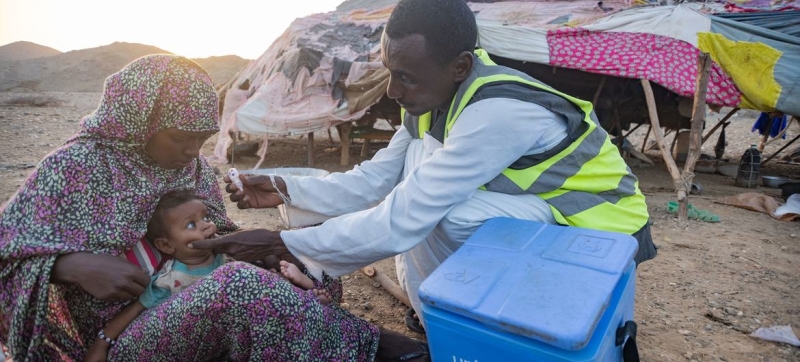
Vaccination of a child in Sudan. WHO: Government spending on health is falling, which could have serious consequences for the population Health
Public spending on health per capita fell globally in 2022 compared with 2021 after rising during the pandemic, according to a new report from the World Health Organization (WHO) to mark International Universal Health Coverage Day, which is marked annually on December 12.
Public spending is key to ensuring universal access health care. Their decline could have dire consequences, especially in a context where 4.5 billion people in the world lack access to basic health services and 2 billion face financial hardship due to health care costs.
“While access to health services is expanding worldwide, more and more people face financial hardship or fall into poverty as a result of using them. World Universal Health Coverage Day reminds us that health for all means access to health services without financial barriers,” said WHO Director-General Tedros Adhanom Ghebreyesus.
Who pays for health care?
Protecting people from financial hardship due to direct health costs is fundamental to achieving health for all.
Read also:
WHO: 20 percent of families in Europe and Central Asia cannot afford health care
The problems associated with the lack of financial protection in health care are not limited to poor countries. Even in high-income countries, paying for health care causes financial hardship among the population, especially the poorest. This situation can also force people to forgo the health care they need.
In more than a third of high-income countries, patients pay more than 20 percent of total health expenditure out-of-pocket, according to the latest WHO data.
On World Health Day, WHO calls on leaders to make universal health coverage a national priority and end health poverty by 2030.
Lessons from the pandemic
During the COVID-19 pandemic in 2020–2022, public spending enabled health systems to respond quickly to emergencies. This demonstrated the advantages of using public budgets to finance public health, especially preventive interventions, compared with other health schemes in a crisis. Public funding ensured greater protection for people and saved more lives.
WHO’s Efforts
Timely and reliable data on the level and composition of spending are needed to make better decisions about health investments. WHO has been tracking global health expenditure for 25 years.
Major achievements include the creation of the Global Health Expenditure Database, containing information from more than 190 countries since 2000, and the annual publication of the Global Health Expenditure Report since 2017. These publicly available resources promote transparency and accountability in health policies around the world.
From 11 to 13 December, national health authorities, heads of WHO country offices and health policy advisers from more than 125 countries are gathering in Lyon, France, to review progress, identify priority areas for action and set the agenda for the next phase of the WHO Health Expenditure Partnership for 2025–2027.
